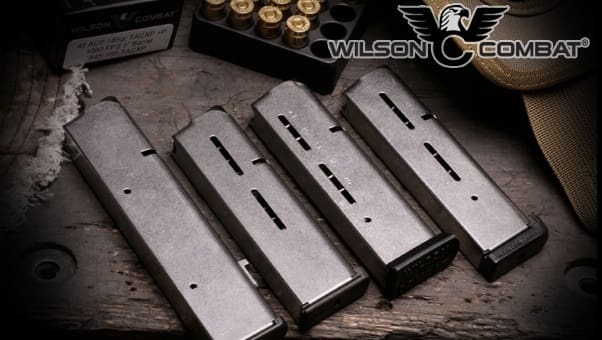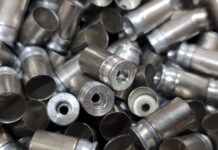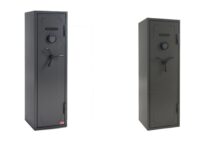|
1) Beware of tube dents- if a magazine gets stepped on at the range-check for tube denting/dings that may prevent free follower travel and cause failures to feed. 2) Look for ejector contact- in the myriad of 1911 pistols on the market there are no standard dimensions for extended ejectors-make sure your magazine lips do not strike the bottom of your ejector causing tube or ejector damage-have ejector fitted as needed.
3) Visually check the top rear of your magazine lips for cracks that may induce malfunctions. Only buy magazines with thick, heat-treated tubes that are engineered not to crack during use. 4) When a magazine won’t freely eject, the feed lips may be spreading due to upward pressure from the follower or poor heat treatment. Feed lips that have spread cannot be fixed and the magazine tube must be replaced. Buy magazines with parallel lips and heat- treated tubes that resist spreading. 5) Failure to lock the slide back on the last round may indicate a worn follower, spring or both-when cycling the slide slowly by hand, your magazine should briskly lock the slide lock up into the slide notch. Followers and springs should be regularly inspected and replaced as needed. Never stretch a spring to restore function! 6) Failure to feed on the last round can also indicate that your magazine springs have fatigued to the point where the follower can’t keep pace with the cycling of the slide-replace springs on a schedule or as needed. 7) If you keep your magazines loaded or use them daily, consider replacing the springs annually to preserve flawless magazine function. 8) Magazines should be disassembled and cleaned anytime they are dropped in a dusty or sandy environment or are heavily fouled with firing residue-Cleaning with solvent is OK, but do not use more than the slightest amount of lubricant. Buy magazines that are easy to disassemble for cleaning and maintenance. 9) Pistol magazines should be clean and dry at all times. If exposed to moisture, your magazine springs should be cleaned to prevent the springs from rusting. Consider magazines with stainless steel springs around corrosive, hard-use environments. 10) For duty or carry magazines consider upgrading to metal basepads to prevent damage when loaded magazines are dropped on a hard surface. Traditional, spot-welded baseplates can be prone to popping off during speed reloads-for hard use, buy magazines with floorplates that lock on the tube via mechanical means. |





Buy magazines that are easy to disassemble for cleaning and maintenance.
+infinity for any mag fed firearm
Oddly enough, I’ve found that my 1911 magazine problems were solved, once I started buying Wilson Combat magazines. I like everything about ’em – they are well-made, they don’t jam, and their followers seem to work better than the other guys. Cheap magazines will get you killed. Good ones are worth the extra bucks.
…or just stick with a non-1911 pistol and avoid the problem completely.
Comments are closed.